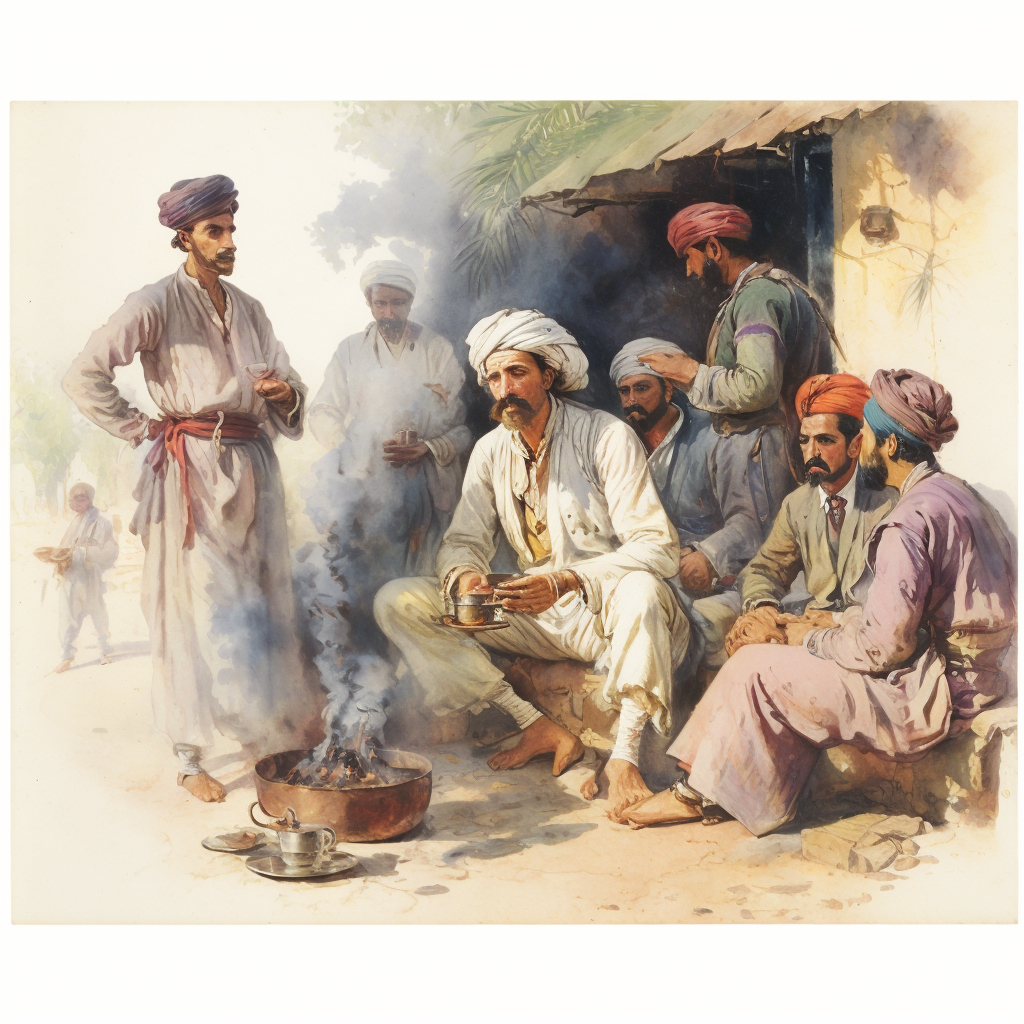Charles Montagu Doughty (19 August 1843 – 20 January 1926) was an English poet, writer, explorer, adventurer, and traveler, best known for his two-volume 1888 travel book “Travels in Arabia Deserta.”
Early Life and Education
Born at Theberton Hall near Saxmundham, Suffolk, to Rev. Charles Montagu Doughty and Frederica Beaumont Hotham, Doughty received his education at various private schools in Laleham and Elstree. He later attended a school for the Royal Navy in Portsmouth and was a student at King’s College School, Wimbledon. Doughty pursued higher education at Gonville and Caius College, Cambridge, eventually migrating to Downing College, Cambridge. In 1866, he earned his BA, followed by an MA from Caius in 1869.
The Monumental Work: “Travels in Arabia Deserta”
Doughty’s claim to fame lies in his monumental 1888 travel book, “Travels in Arabia Deserta.” Initially met with little immediate influence upon its publication, it gradually evolved into a touchstone of ambitious travel writing, appreciated not only for its content but also for its distinctive language. T. E. Lawrence, better known as Lawrence of Arabia, rediscovered Doughty’s work in the 1920s and played a crucial role in republishing it. Lawrence contributed an admiring introduction, underscoring the book’s enduring value.

This literary masterpiece offers a sweeping account of Doughty’s journeys through the Arabian deserts, where he made numerous discoveries. His writing style in this work is extravagant and mannered, heavily influenced by the King James Bible. However, it remains a source of surprise with its unique verbal turns and inventive expressions. Doughty’s literary prowess and distinctive approach left an indelible mark on subsequent authors.
Influence and Literary Legacy
Notably, British novelist Henry Green celebrated Doughty’s work in his essay “Apologia,” featured in his collection “Surviving.” Green’s own novels exhibit the stylistic influence of Doughty’s writing, a connection observed by John Updike in his introduction to Green’s novels “Loving,” “Living,” and “Party Going.”
Doughty’s contributions extend beyond his travelogues. His epic poem “The Dawn in Britain,” initially published in six volumes in 1906, laid the groundwork for Laura (Riding) Jackson and Schuyler B. Jackson’s project, “Rational Meaning: a New Foundation for the Definition of Words and Supplementary Essays.” The Jacksons commend Doughty for exemplifying an understanding of language’s inherent meaning through meticulous diction. His preference for pre-Shakespearean English for linguistic rather than literary reasons reflects his commitment to linguistic precision.
In recognition of his extensive travels and writings, Doughty received the 1912 Royal Geographical Society’s Founder’s Medal, an accolade affirming his profound impact on the literary and exploration worlds.
The Orientalist Connection
Edward Said, in his examination of late 19th-century Orientalist style, positions Doughty within a category alongside renowned figures like T. E. Lawrence, Gertrude Bell, and David George Hogarth. These individuals, while asserting their individual visions of the Orient, Islam, or the Arabs, shared a common disdain for official knowledge about the East. Their collective work reflects the prevailing Western attitudes of the era, characterized by both fascination and fear of the Orient.
Personal Life and Legacy
In 1886, Doughty married Caroline Amelia, the daughter of General Sir William Montagu Scott McMurdo, with whom he had two daughters: Dorothy Susan and Frederica (“Freda”) Gertrude Doughty. Both daughters gained recognition as sculptors and potters. Additionally, Doughty was related to Lieutenant-Colonel Charles Doughty-Wylie, VC, CB, CMG, and Naval Rear Admiral Henry Montagu Doughty, CB.
Charles Montagu Doughty’s cremated remains found their final resting place at Golders Green Crematorium on 25 January 1926, specifically in Bay 1 of the Cloisters (tablet 2610).
Notable Works
Apart from his renowned “Travels in Arabia Deserta,” Doughty’s literary contributions include “Documents Épigraphiques Recueillis dans le Nord de l’Arabie” (1884), “The Dawn in Britain” (1906), “Adam Cast Forth” (1908), “The Cliffs” (1909), “The Clouds” (1912), “The Titans” (1916), and “Mansoul; or, The Riddle of the World” (1920).
